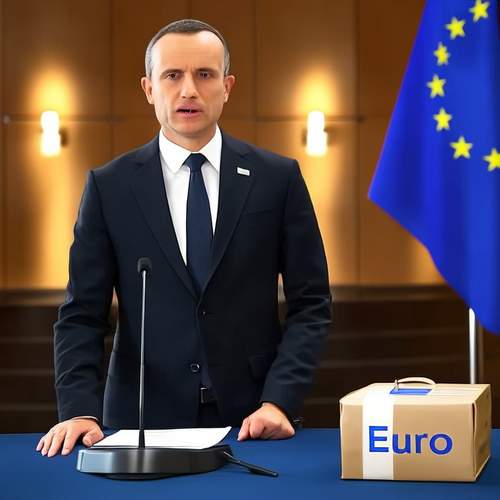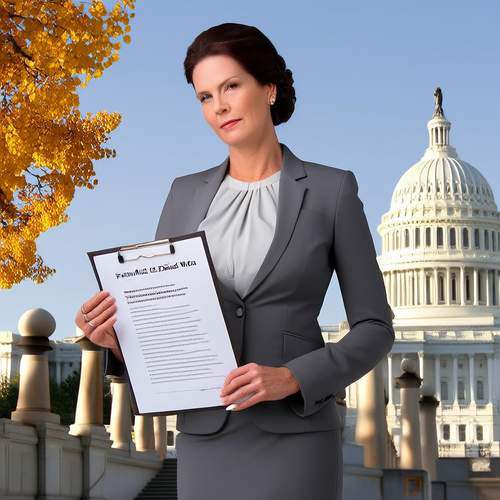In a historic legal victory for consumers, millions of shoppers across the UK could soon receive up to £70 each following a tribunal's approval of a settlement in a lawsuit against Mastercard. This decision marks the culmination of a long and complex legal battle that has spanned nearly a decade, initiated by Walter Merricks, a former financial ombudsman. The case centers on the excessive fees levied by Mastercard on businesses over a 15-year period, which ultimately led to higher prices for consumers.
The Origins of the Legal Battle
The lawsuit against Mastercard was launched by Walter Merricks, who argued that the card provider had wrongfully charged businesses excessive fees for processing transactions between 1992 and 2008. These fees, known as "multilateral interchange fees," were paid by retailers accepting Mastercard payments. Merricks contended that these charges were passed on to consumers in the form of higher prices for goods and services, effectively overcharging millions of shoppers.
The European Commission had previously ruled in 2007 that Mastercard's fees had infringed competition law since 1992. This ruling provided the legal foundation for Merricks' claim, which sought to hold Mastercard accountable for the financial burden it had imposed on both businesses and consumers.
The Scope of the Settlement
The settlement approved by the tribunal amounts to a total of £200 million, with £100 million specifically allocated for consumers. Eligibility for compensation extends to individuals who lived in England, Wales, or Northern Ireland for at least three months between June 1997 and June 2008, and who purchased goods or services from UK businesses that accepted Mastercard credit cards. For those residing in Scotland, the eligibility period begins in May 1992.
Merricks estimates that approximately 46 million shoppers in the UK were overcharged due to Mastercard's fees. If the expected 5% of eligible claimants—around 2.5 million people—come forward to claim their compensation, each individual will receive £45. However, if fewer people apply, the payout per claimant will be capped at £70.
The Process of Claiming Compensation
Walter Merricks has stated that consumers will soon be able to register for their compensation by completing an online form. This streamlined process aims to make it as easy as possible for eligible individuals to receive their rightful payouts. The settlement represents a significant victory for consumers, who have long been affected by the hidden costs of Mastercard's fees.
The Role of the Access to Justice Foundation
The tribunal has ruled that any unclaimed funds from the settlement will be directed to the Access to Justice Foundation. This organization, dedicated to improving access to justice for those in need, has already begun working with partners to ensure that any unclaimed money is distributed to charities that will make a meaningful difference.
Clare Carter, the chief executive of the Access to Justice Foundation, expressed her commitment to ensuring that the funds are used effectively. "We have already begun working with partners to ensure any unclaimed money gets distributed to charities that will improve access to justice for those that need it the most," she said. This aspect of the settlement not only compensates affected consumers but also contributes to a broader social good.
The Significance of the Settlement
The approval of the settlement by the Competition Appeal Tribunal represents a landmark moment in the fight for consumer rights. Walter Merricks, reflecting on the outcome, emphasized the importance of holding companies accountable for their actions. "I started this case because I believed that Mastercard's fees paid by retailers for processing card transactions had been unlawfully high," he said. "Virtually all UK consumers had lost out for long periods by paying higher prices than they should have done as retailers passed on those costs."
The settlement not only provides financial compensation to affected consumers but also sends a powerful message to companies about the importance of fair business practices. It underscores the need for transparency and accountability in the financial sector, particularly in areas that directly impact consumers.
The Broader Implications
This case highlights the far-reaching impact of competition law and the importance of regulatory oversight in protecting consumers. The European Commission's ruling in 2007 played a crucial role in bringing this issue to light and paved the way for Merricks' legal action. The settlement serves as a reminder that regulatory bodies have a vital role to play in ensuring fair competition and protecting the interests of consumers.
For Mastercard, the settlement represents a significant financial and reputational challenge. While the company has declined to comment on the court ruling, the outcome underscores the importance of adhering to competition law and maintaining ethical business practices. It also highlights the potential consequences of failing to do so, both in terms of financial penalties and damage to brand reputation.
The settlement in the Mastercard lawsuit marks a historic victory for consumers and a significant step forward in the fight for fair business practices. The £200 million payout, along with the allocation of unclaimed funds to the Access to Justice Foundation, represents a fair and just outcome for UK consumers who were affected by Mastercard's excessive fees.
As consumers prepare to claim their compensation, the case serves as a powerful reminder of the importance of regulatory oversight and the need for companies to prioritize ethical practices. The outcome also highlights the role of individuals like Walter Merricks, who are willing to take on powerful corporations to protect the rights of consumers.
In the broader context, this settlement underscores the ongoing need for vigilance and advocacy in the financial sector. It demonstrates that, through collective action and regulatory oversight, consumers can hold companies accountable and secure justice for widespread injustices. As the process of claiming compensation begins, the focus will now turn to ensuring that this landmark settlement delivers meaningful relief to those who have been affected.




















